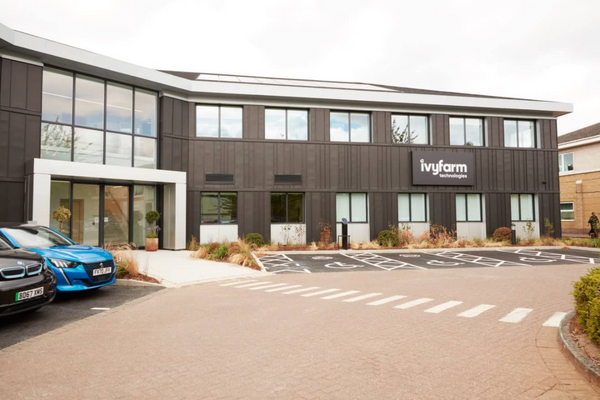Every week we track the business, tech and investment trends in CPG, retail, restaurants, agriculture, cooking and health, so you don’t have to. Here are some of this week’s top headlines.
Despite a historic surge in popularity, ESG investing was never designed to save the planet. As Harvard Business Review writes, the danger here is that policymakers may be led to believe that markets can solve major challenges like climate change, when in fact, only governmental intervention can help stave off catastrophe.
In the UK, cultivated meat company Ivy Farm made history by opening the largest cultivated meat factory in Europe, which the company says can produce nearly three tons of cell-based meat analogues per year.
Our newsletter takes a lot of time and resources to produce. Make a one time or monthly contribution to help us keep it going. Whether it’s $5 or $500, every bit helps and shows us that you value our work.
1. ESG Investing Isn’t Designed to Save the Planet – Harvard Business Review
The danger with ESG investing is that it might convince policy makers that the market can solve major societal challenges such as climate change — when in fact only government intervention can help the planet avoid a climate catastrophe.
2. Ivy Farm Opens the Largest Cultivated Meat Factory in Europe – Green Queen
The pilot plant is the first of its kind to open in the UK. Ivy Farm says its new 18,000-square-foot Oxford cultivated meat plant can produce nearly three tons of cultivated meat per year.
3. From Plant Based Kalbi To Tofu Cheese: A Deep Dive On Japan’s Booming Alt Protein Sector – Green Queen
The Green Queen team unpacks the alt protein market in Japan, revealing the key players, what consumers think, and the challenges and opportunities that lie ahead.
4. Temporary Victory in South Africa Where Seizure of Plant-Based Foods Has Been Halted – Vegconomist
The Food Safety Agency (FSA) was set to begin the seizure of thousands of plant-based meat alternatives from retailers across the country for using terms such as “burger,” “nugget,” and “sausage.” Plant-based advocates have succeeded in temporarily halting those seizures.
5. Restaurant Outsourcing Startup Bite Ninja Raises $11.3M – Memphis Inno
Bite Ninja’s 12,000 workers provide remote labor for front-of-house restaurant tasks like taking orders. The round will go towards Bite Ninja’s technology platform.
6. India’s Loopworm Secures $3.4M Seed Round – AFN
Loopworm is the first Indian technology startup to farm insects for animal feed. The funding will be used for talent acquisition, research, and development acceleration, as well as setting up Loopworm’s first factory in North Bangalore to scale-up production.
7. USDA Invests up to $300M to Expand Organic Certification – Food Dive
The investment includes providing technical assistance, farmer-to-farmer mentoring, crop insurance assistance and direct monetary support to farmers hoping to transition to organic.
8. UK Agritech Startups to Reap £16.5M in Government Funding – UKTN
The UK government will invest an additional £16.5 million into agritech research and development as part of its £270 million Farming Innovation Program.
9. The Colorado River Drought Is Coming for Your Winter Veggies – Vox
Farmers use about three-quarters of all the water that people take from the Colorado River. Winter veggies like lettuce and broccoli as well as Arizona’s wheat could take a big hit from the river’s drought, now in its 23rd year.
10. Vive Crop Protection Closes $26M Series C to Accelerate Precision Chemistry – AFN
The funding will be used to accelerate Vive’s commercial deployment of its product portfolio into new North American markets while advancing its research and development pipeline.
11. Venus Williams-Founded Happy Viking Raises $2M From World’s Top Athletes – Vegconomist
The superfood brand carries shakes and other products that aim to increase the health and performance of fitness enthusiasts and athletes. The funding will assist in new products innovations and releases.
12. The World’s First Precision Fermentation Lactoferrin Is Market Ready – Green Queen
Biotech company TurtleTree says it has developed bovine lactoferrin—a protein abundant in colostrum—using precision fermentation technology.
13. Finland’s Fazer Exploring Cell-Based Cocoa – Food Business News
Finnish government organization Business Finland is providing funding for Fazer to explore producing raw cocoa material in a lab via cellular agriculture.
14.Has Everyone Stopped Drinking? – UK Vogue
The low- and no-alcohol beverage sector has grown by 506% since 2015. Nowadays, there are enough nonalcoholic options to make quitting seem like a reasonable proposition for many.
15. Ditch Your Grocery Store. Go Foraging Instead – The Washington Post
Gabriel Popkin examines the environmental, nutritional and moral case for eating wild foods.






